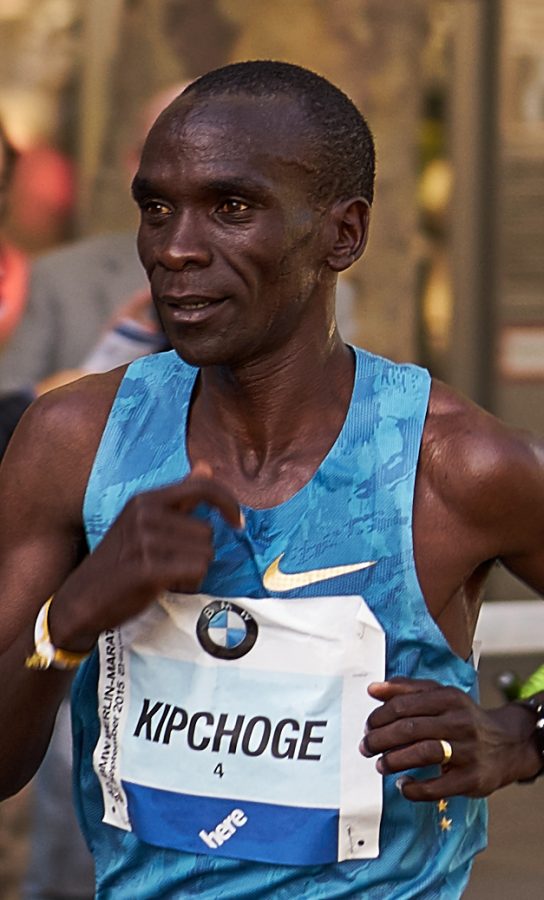COMMENTARY: Nike ‘technology doping’ claim is desperate attempt at undermining history
Denis Barthel / Wikimedia Commons
Recognized as the greatest marathon runner of the modern era, Eliud Kipchoge and other athletes have been criticized for setting records by “technology doping.”
In recent months, particularly since Eliud Kipchoge’s record-breaking, sub-two-hour marathon in October, the validity of his effort has come into question. In a broader context, the achievements of a variety of Nike athletes have come under scrutiny for what has been described as “technology doping” by critics, enabling the runners to break barriers.
The concept of marginal gains has existed for decades in elite-level sport. Yet, it seems this story is the first of its kind. Back in October, a matter of days after Kipchoge had smashed the two-hour mark for a men’s marathon, his fellow Kenyan Brigid Kosgei set a new women’s world record over the same distance.
Both runners wore bespoke versions of Nike’s trainers which have been designed to “improve running economy by 4%,” or generously give the unfair sensation of “running on trampolines,” depending on your perspective. Regardless, Kosgei’s record-setting run in Chicago means that both the men’s and women’s marathon and half-marathon world records are now held by runners who wore the controversial Nike model on foot. Can it really be a coincidence, or is there a sinister undertone at play that was perceived necessary in pursuit of such greatness?
“Athletics” and “doping” are words that should be paired tentatively. Long has the sport seen drug-related cheating as a genuine threat to its credibility, with high-profile cases such as those of Justin Gatlin tarnishing athletics in the past. Therefore, using the phrase “doping” seems a stretch and disproportionate to the supposed level of cheating at play in the case of Nike’s Vaporfly shoes. It is also entirely unfair on the superhuman efforts of Kipchoge, who, in running a marathon in 1:59:40, cruised towards a “milestone once believed to be unattainable.”
For what it’s worth, sport has a good record of punishing those who bend its rules. The cheats, historically, don’t prosper, at least not forever. Just ask Lance Armstrong, Diego Maradona or the Russian sporting institution as a whole.
A highly-tuned athlete trains to push their limits in pursuit of goals. Surely, then, these two specific achievements, which have likely been in the works for countless years and many miles of practice, cannot be tainted because of the footwear involved. Despite this, in the eyes of World Athletics, there is a fine line that is close to being crossed: the governing body recently ruled that Nike’s Vaporfly range will not be banned, but there will be tighter regulations around high-tech running shoes. What’s more, “World Athletics has also introduced an immediate indefinite ban on any shoes that have a sole thicker than 40mm.”
Yet, as a passionate sports fan who is moved by the fierce competition and dedication required for sport at all levels — not just at the very top — I can’t get on board with the joint vilification of Nike and some of its athletes in this case.
Perhaps we have been forced to question incredible achievements, or have at least been subconsciously trained to because of some of the dirty sporting tales of years past. This doesn’t feel like one such case, and until that is proven otherwise, we must celebrate truly extraordinary achievements such as these rather than attempt to undermine them, not merely as sporting successes but triumphs for humanity also.

Hi! I am George Murray, one of the Sports Editors at Hilltop Views. I am an english literature major and journalism & digital media minor graduating...







